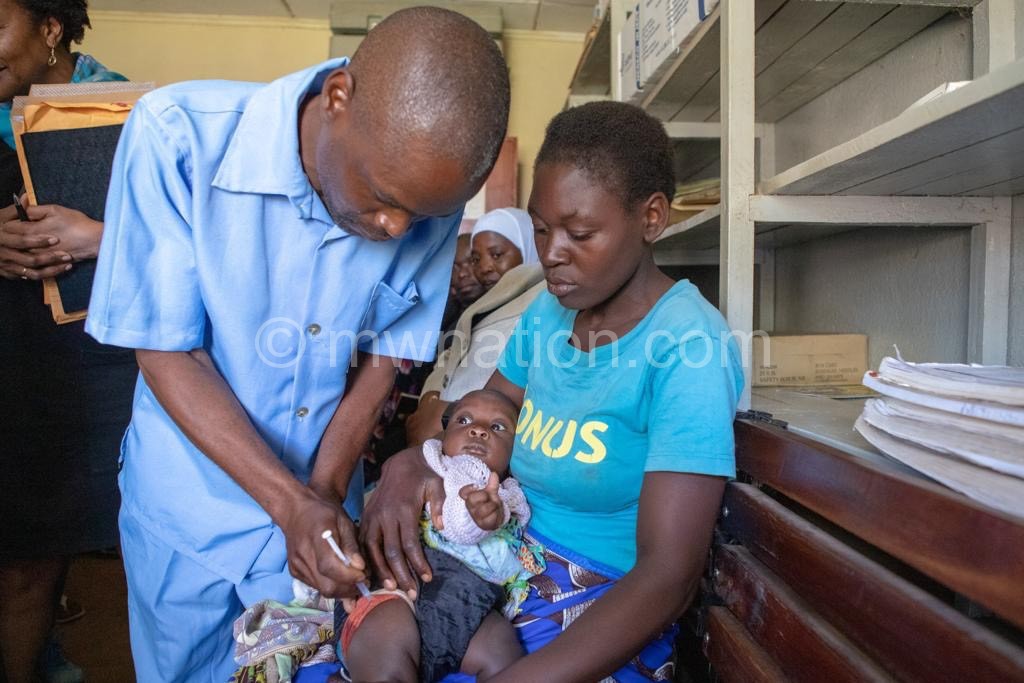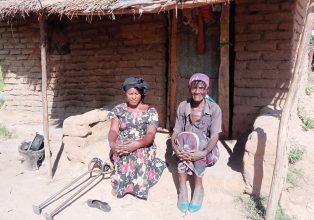Rural clinic halts children deaths
Makoli Village is just about 14 kilometres from Mangochi District Hospital, but it takes almost seven hours to pass through swampy bushes and waterlogged spots that typify the road, especially during the rainy season.
Sick under-five children from the area cannot survive such a gruelling trip. Five years ago, this was their only option.

“Before, babies would collapse and while we tried to figure out what to do, they would die right in front of our eyes. Today we have a village clinic right in our community and it has made a difference,” explains Zaituna Meleka, 24, who had just brought her youngest daughter to Makoli Village Clinic.
She brought in her one-and-half-year-old daughter Shamillah to the clinic because she had developed a fever and was coughing.
Zaituna says it is now easy to walk to the clinic any time of day or night to get assistance.
The only healthy worker at the clinic, health surveillance assistant Vincent Dumba, looks after five villages that have 640 families.
Dumba was trained to provide Integrated community case management (ICCM) services to parents or guardians bringing in sick children to the hospital.
“The training opened my eyes as I can detect medical problems in children by interviewing parents or guardians with relevant questions,” he explains.
Dumba uses his skills to examine if the child has symptoms of life-threatening diseases like pneumonia and cholera.
He says where it is clear that the medical problems brought before the village clinic cannot be managed there, they are referred to the nearest health facility which is Mangochi District Hospital.
“The ICCM services have really changed people’s lives for the better when it comes to accessing medical help.”
Dumba is also well trained in childhood diarrhoeal case management in terms of using a co-package of L-ORS and Zinc. He adds that diarrhoea is common during the rainy season— October to December.
In such cases, he immediately administers oral rehydration salts and where the sick child is less than six months old, they are given five Zinc tablets which are taken in halves. Children that are above six months get a zinc tablet daily for 10 days.
With support from Set Aside and Rockefeller Foundation, Unicef supports village clinics with ICCM and integrated management of childhood illnesses services.
In the four years Dumba has been running the clinic, he has lost one child.
His workload is overwhelming.
“I start work at 6am to attend to the parents and guardians that come early with the sick children and clock out at 4pm or beyond depending on the pressure,” he says.
Lenah James, a member of Makoli Village Health Committee, says ever since the clinic opened in the village, children get instant help unlike before. As a committee, they also encourage communities to take a proactive approach in childhood diarrhoeal case management.
“As committee members, we also help escort guardians of sick children to the main hospital once they have been referred by the clinic here,” explains James.
Besides teaching community members to follow good hygiene practices to reduce diarrhoea, the committee members also lead by example in cleaning the facility on a daily basis.
“Looking at how the community has been able to manage different child illnesses, we have realised the advantages of having this clinic in this village,” she says.
The committee members also visit parents that are nursing sick children to ensure that parents are following prescriptions by the health worker.
With such cooperation, James says the distance between their village and the district hospital no longer gives them anxiety when their children fall ill.




